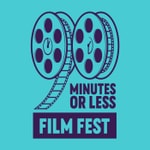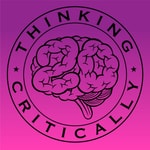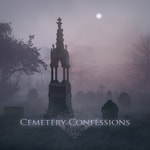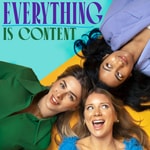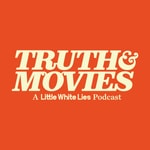Autism Through Cinema – Details, episodes & analysis
Podcast details
Technical and general information from the podcast's RSS feed.
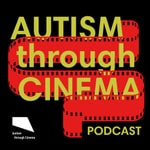
Autism Through Cinema
Autism Through Cinema
Frequency: 1 episode/17d. Total Eps: 53

Recent rankings
Latest chart positions across Apple Podcasts and Spotify rankings.
Apple Podcasts
🇬🇧 Great Britain - visualArts
24/07/2025#91🇬🇧 Great Britain - visualArts
23/07/2025#45🇬🇧 Great Britain - visualArts
19/07/2025#96🇬🇧 Great Britain - visualArts
18/07/2025#37🇬🇧 Great Britain - visualArts
17/07/2025#22🇨🇦 Canada - visualArts
12/07/2025#85🇨🇦 Canada - visualArts
11/07/2025#60🇨🇦 Canada - visualArts
10/07/2025#36🇬🇧 Great Britain - visualArts
13/06/2025#65🇨🇦 Canada - visualArts
08/05/2025#100
Spotify
No recent rankings available
Shared links between episodes and podcasts
Links found in episode descriptions and other podcasts that share them.
See all- https://twitter.com/lillcrawf
8 shares
- https://twitter.com/AshtonLamont
2 shares
RSS feed quality and score
Technical evaluation of the podcast's RSS feed quality and structure.
See allScore global : 63%
Publication history
Monthly episode publishing history over the past years.
50th Episode Special
Episode 54
vendredi 6 octobre 2023 • Duration 01:19:54
We have arrived at our final episode as the 'Autism Through Cinema' podcast.
This is also our 50th episode, so all six of the regular hosts have gathered to look back on the work we have done over the past few years. Each host picks a favourite episode and offers their thoughts, before we join back together to reflect on the medium of podcasting as an academic pursuit.
Here are the direct links to the episodes discussed by each host:
Georgia: Punch-Drunk Love
Ethan: Cat People
Janet: Orlando
Alex: Asylum
Lillian: Amelie
David: Cars
We are hopeful that in some regard some of us may well be able to return to podcasting about the ongoing connections between autism and film, but for now we will say goodbye and thank you so very much for listening.
And huge special thank you also to all who have been involved in the making of this podcast, including our former host John-James Laidlow, all our wonderful special guests, and our editors Benjamin Leverett-Jaques and 344 Audio.
And final thanks to you, our listeners, for your downloads, streams, and support over the past few years.
Here's to a bright autistic cinematic future!
The Revenant (2015) dir. Alejandro González Iñárritu
Episode 53
vendredi 29 septembre 2023 • Duration 01:06:57
A huge welcome today to our final special guest, the wonderful Alex Gregson. Alex is Head of Audio at 344 Audio, and has led on the edits of the last eight episodes of our podcast, for which we are eternal grateful. He is newly diagnosed as autistic and reflects very thoughtfully on how his autism has contributed positively to his career as a sound engineer and audio editor.
For our analysis, Alex brings along Alejandro González Iñárritu's Academy Award winning 2015 revenge thriller The Revenant, and asks David and Lillian to pay particular attention to the rich soundscape of the film. We discuss the careful detailing of the sound design, as well as Iñárritu's concoction of a 'cacajanga' soundscape. We find autistic resonance in the meticulous attention paid to the layering of the natural sounds of the wild landscapes, as well as the precise choices made in the levels of balance between sound effects, score and dialogue.
We move on the reflect on some of the challenges faced by neurodivergent individuals who are sensitive to sound, and consider how filmmakers might rethink their approach to final mix of a movie to better accommodate those who might struggle with such sensory input.
A huge thanks again to Alex for joining us, and for doing such a brilliant job of editing our latest batch of episodes. For more on the work that 344 Audio do, you can visit their website here: https://www.344audio.com/
Harold & Maude (1971) dir. Hal Ashby, with Andrew Brenner
Episode 44
vendredi 28 avril 2023 • Duration 01:13:00
We've made a brief sidestep into TV for the first half of episode #41 because we are joined by the wonderful Andrew Brenner, Headwriter of the CBeebies show Pablo. For the uninitiated, Pablo is an animated show about an autistic boy and his imaginary animal friends and has been a staple of CBeebies since 2017. Andrew talks us through how the show came to be, how it developed, and the importance of working with autistic performers. Three particular episodes of the show are discussed, all of which are freely available to view on BBC iPlayer: https://www.bbc.co.uk/iplayer/episodes/b097bs09/pablo
It's also worth mentioning that we have previously featured one of the voice actors from Pablo, the brilliant artist Sumita Majumdar who joined us for episode #23 to talk about Being Frank: The Chris Sievey Story. Do scroll back through our archive to find it!
Following the Pablo chat, Andrew, Janet, Alex and Georgia move on to discuss the 1971 Hal Ashby film Harold & Maude. The film's two outsider protagonists are considered in autistic terms, as is their unusual age-gap relationship. Empathy comes under examination, which is found to be lacking in the stiff typical characters that surround the central pair, before the discussion turns to how the two central characters buck the conventions of gender expectations.
Towards the end, Andrew gives a shout-out to our crossover episode with Talking Images in which co-host David Hartley talks about another of Ashby's films about an outsider: Being There. Here's the link to that episode: https://open.spotify.com/episode/0ACULrwtGxYWM867qPxpdU
Huge thanks to Andrew for joining us!
Tomboy (2011) dir. Celine Sciamma with Sophie Broadgate
Episode 43
vendredi 14 avril 2023 • Duration 01:24:01
Welcome back to a fresh batch of episodes exploring autistic resonance and sensibility on film!
We are delighted to welcome the wonderful Sophie Broadgate to the podcast today. Sophie is an autistic filmmaker working in Cumbria and Manchester whose recent short films 'In Motion' and 'We've created invisible systems and structures' explore autistic identity and experience. We chat to Sophie about her own diagnostic experience, her processes working with autistic subjects, and some of her artistic choices. Sophie's brilliant work can be viewed on her website: pikaiafilms.co.uk. You can also find Sophie on Instagram at @sophiebroadgate.
We then move on to our discussion on Celine Sciamma's 2011 film Tomboy, which Sophie brought along for our consideration. We find much to admire in Sciamma's balanced approach to her subject matter, and uncover autistic resonance with Laure/Mickael's explorations of gender non-conformity and childhood. Questions marks hang over the final narrative decision of the film but we appreciate the gentle and careful framing of the moment as a conscious choice of the protagonist.
Huge thanks to Sophie for joining us!
Jeanne Dielman, 23, quai du Commerce, 1080 Bruxelles (1975) dir. Chantal Akerman
Episode 42
lundi 16 janvier 2023 • Duration 01:13:41
On the 1st December 2022, the Sight and Sound Greatest Film of All Time poll unveiled a surprising result. The poll takes place every 10 years and for fifty years the top spot was held by Citizen Kane before switching to Vertigo in 2012. This time, with a wider pool of industry voters including filmmakers, critics, academics and curators, the crown has been snatched by Chantal Akerman's Jeanne Dielman, 23 quai du Commerce, 1080 Bruxelles (1975).
Lillian has been super keen to bring Akerman to the ATC podcast for a while, so we decided this was a perfect opportunity. She is joined by Janet and Georgia for a wide-ranging discussion about autism, feminism, and the nature of what to include in the 'Greatest Films of All Time' canon.
Do you have thoughts on the Sight and Sound Poll? Have you identified autistic presence in Akerman's work? Do let us know! You can email us your thoughts on cinemautism [at] gmail.com
The Falls (1980) dir. Peter Greenaway
Episode 40
vendredi 25 novembre 2022 • Duration 01:16:23
There's a Peter Greenaway season happening over at the BFI in London, and our Lillian recently conducted an interview with the man himself, which you can find here:
https://www.bfi.org.uk/interviews/beginning-was-image-interview-with-peter-greenaway
We thought, therefore, that it was high time we covered Greenaway, especially with Ethan boldly describing the director's work as one of the 'most autistic'...
Lillian and Ethan get together with Georgia to tackle Greenaway's first feature-length film, the epic apocalyptic mockumentary The Falls. We find an autistic mode in the film's approach to categorising and cataloguing, and connect strongly with Greenaway's interest in attempting to both capture and elude a wholeness and totality.
We also enjoy the film's absurdist imagery, and its complex approach to the use of language, particularly in relation to finding new words and visual imagery for what cannot be easily expressed. The mention of autism in relation to Greenaway on the documentary The Greenaway Alphabet is warmly received and enables our team to be all that more effusive about autistic presence in The Falls, and the affirmation of autistic presence in filmmaking more widely.
Catch the Greenaway season at the BFI across November and December, and also on the BFI Player.
And, if you're quick, you might be able to see Ethan in the flesh when he gives his introduction to David Cronenberg's The Fly at the BFI on Monday 28th November 2022. Tickets still available here.
Uncle Boonmee Who Can Recall His Past Lives (2010) dir. Apichatpong Weerasethakul
Episode 39
vendredi 4 novembre 2022 • Duration 01:17:15
We take a gentle, nostalgic, and surreal turn with this episode via Apichatpong Weerasethakul's 2010 palm d'or winning fantasy film, Uncle Boonmee Who Can Recall His Past Lives.
We meditate on what so-called 'Slow Cinema' can offer the autistic viewer, and how this form of filmmaking cuts against the mainstream fast-paced approach. We also enjoy Weerasethakul's fantastical leanings and the methods he uses to normalise and naturalise the supernatural, while we also consider how the natural landscape of the Thai jungles evoke the connections often made between autism and the environment.
Georgia manages to make an intriguing comparison to the work of David Lynch, while Lillian laments alternative methods of filming nature that Uncle Boonmee seems to want to resist.
To read about the autistic 'ecological sainthoods', as explored by Dr Anna Stenning, find her article here: https://dsq-sds.org/article/view/7715/7606
What do you make of the work of Weerasethakul and other proponents of 'slow cinema'? Does it connect with an autistic sensibility? Do let us know! Email us on cinemautism[at]gmail.com or join in the conversation on twitter @AutismCinema
Special Episode: Relaxed Screenings with Maggi Hurt (BFI)
Episode 38
vendredi 21 octobre 2022 • Duration 01:10:00
In a break with our normal schedule, and posted a week early, we bring you a special episode where we reflect on the nature of 'Relaxed Screenings'.
You might have seen these advertised at cinemas - special events organised with autistic and neurodivergent audiences in mind. Typically the lights are dimmed but not fully turned off, the volume is lowered, there's an understanding among the audience that there may be people fidgeting or making noise, and there's often a separate room set aside as a quiet space. All these accommodations are to be welcomed, but perhaps there are also some problems that arise from trying to create a 'one size fits all' approach to autism-friendly screenings? Also, who chooses the films that are shown in these relaxed screenings? What might happen when the curators are autistic themselves?
To discuss all this, Ethan and David have invited Maggi Hurt, a programmer at the British Film Institute in the Southbank, London. Maggi has been responsible for devising and programming the 'Relaxed Series' screenings where she has worked in collaboration with autistic film lovers to curate events for autistic audiences. For their upcoming 'In Dreams are Monsters' season, our very own Ethan Lyon has taken up the challenge, and has programmed two horror films for the Relaxed Series. We talk about Ethan's choices, while also reflecting on how relaxed screenings work and what their future might be.
Tickets are still available for Ethan's screenings, and the man himself will be there to lead a Q&A discussion session afterwards at both events. Here are the details:
Pontypool - Monday 31st October 2022, 18:10, NFT3. Tickets here: https://whatson.bfi.org.uk/Online/default.asp?BOparam::WScontent::loadArticle::permalink=pontypoolrelaxed
The Fly - Monday 28th November 2022, 18:00, NFT3. Tickets here: https://whatson.bfi.org.uk/Online/default.asp?BOparam::WScontent::loadArticle::permalink=flyrelaxed
Also, David mentions a book by autistic journalist Laura Kate Dale, who writes a little about relaxed screenings. The book is called Uncomfortable Labels and you can find it here: https://www.waterstones.com/book/uncomfortable-labels/laura-kate-dale/9781785925870
The Secret Garden (1993) dir. Agnieszka Holland with Sophia Rose O’Rourke
Episode 37
vendredi 14 octobre 2022 • Duration 01:12:44
We are skipping and stimming with delight to welcome Australian filmmaker and producer Sophia Rose O'Rourke to the podcast today. Sophia talks us through her experiences as an autistic creative and how she has been using filmmaking to help discover and explore her own identity. We talk about her short film 'Danse Russe', based on William Carlos Williams' poem of the same name: https://www.poetryfoundation.org/poems/46483/danse-russe, and we spend some time dwelling on the barriers that autistic people can face when trying to make a space in the film industry. But we also celebrate the very rich strengths that the autistic way-of-thinking can bring to creative cinematic spaces.
We then turn our attention the 1993 version of The Secret Garden directed by Agnieszka Holland and based on the novel by Frances Hodgson Burnett. Sophia recalls her love of the film from childhood and the recognition she felt through the protagonist, Mary. We also reflect on the film's depiction of disability, and the power dynamics that can sometimes arise between carers and dependants.
After the recording, Sophia sent us a timely article on The Conversation about autism and employment. Have a read of it here: https://theconversation.com/how-do-we-make-workplaces-work-for-autistic-people-189572
Enormous thanks to Sophia for taking the time to talk to us and for suggesting The Secret Garden. You can follow Sophia on Twitter at https://twitter.com/auntie_sophie
Do get in touch if you have any reactions to this episode!
Scanners (1981) dir. David Cronenberg
Episode 36
jeudi 6 octobre 2022 • Duration 01:14:10
Hold onto your heads, we're back at you with another horror film just in time for spooky season. Ethan takes Alex and David into the splattery world of David Cronenberg via his 1981 brain-exploding psychological thriller Scanners.
We ponder whether the eponymous telepaths might stand in for an oppressed neurodivergent group, while reflecting on Cronenberg's apparent anti-psychiatry stance. There's a power-play in the film from authority figures seeking to control the scanners, set against a slightly more fascistic ideology of scanner revolution, and we wonder where to place heroism and villainy in this headache of a story. The discussion winds its way to a reflection on the extensive problems around the anti-vaxx movement and we find many parallels with this film and the story of a certain Dr Wakefield. David even starts to ask if science-fiction horror has helped to fuel an anti-science rhetoric? Nevertheless, there is much to enjoy in the gurning faces of the characters, and the gutsy bodyhorror that Cronenberg specialises in.
We would therefore send a little content warning to those of you interested in watching this film - at times it is pretty horrible, and deals with a lot of dark and disturbing themes.
Join in the conversation at @autismcinema on Twitter and via email at cinemautism[at]gmail.com.


